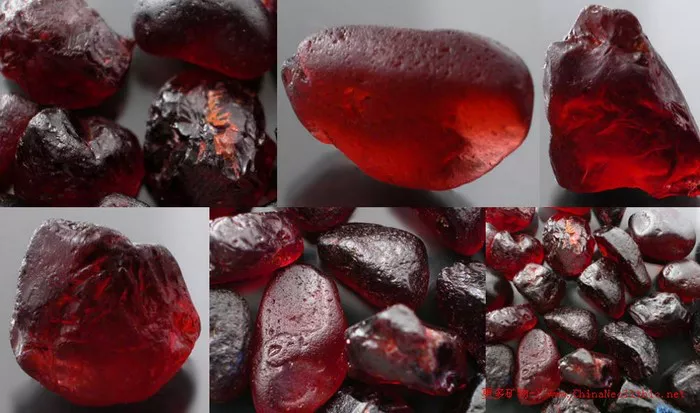Rhodolite garnet is a captivating gemstone that has gained popularity for its unique color and brilliance. But how rare is it really? In this article, we will explore the rarity of rhodolite garnet, delving into its geological formation, mining locations, market demand, and comparison with other garnet varieties.
What is Rhodolite Garnet?
Rhodolite garnet is a variety of garnet, specifically a blend of pyrope and almandine garnets. Its name is derived from the Greek word “rhodon,” meaning rose, due to its rosy-red to purplish-red color. Rhodolite is highly valued for its transparency, vibrant color, and high refractive index, which gives it a brilliant sparkle.
Geological Formation of Rhodolite Garnet
Formation Process
Rhodolite garnet forms under high-pressure and high-temperature conditions within metamorphic rocks. It typically crystallizes in the presence of aluminum-rich minerals and is often found in association with schists, gneisses, and other metamorphic rocks. The unique blend of pyrope and almandine is what gives rhodolite its distinctive color range.
Mining Locations of Rhodolite Garnet
Primary Sources
Rhodolite garnet is primarily mined in regions known for their rich mineral deposits. The most significant sources include:
Sri Lanka: Known for producing some of the finest quality rhodolite garnets, Sri Lanka’s deposits yield stones with a vibrant pinkish-red hue.
Tanzania: The Umba River Valley in Tanzania is another notable source, producing rhodolite garnets with a more purplish tint.
Mozambique: In recent years, Mozambique has emerged as a significant source, providing garnets with a rich, deep red color.
Other Locations
Smaller quantities of rhodolite garnet can also be found in the United States, Brazil, India, and Kenya. However, these sources are less prolific compared to the primary mining regions.
Comparing Rhodolite Garnet with Other Garnet Varieties
Variety and Rarity
Garnet is a diverse group of minerals that includes several varieties, each with distinct colors and properties. Some of the most well-known types include almandine, pyrope, spessartine, grossular, and andradite. Among these, rhodolite garnet is considered one of the rarer varieties due to its unique color and specific geological formation requirements.
Market Demand and Availability
The rarity of rhodolite garnet is also influenced by market demand. High-quality rhodolite garnets, particularly those with intense color and high clarity, are highly sought after in the gemstone market. This demand, coupled with limited sources, contributes to the perception of rhodolite garnet as a rare gemstone.
The Role of Market Dynamics in Perceived Rarity
Supply and Demand
The rarity of rhodolite garnet can be partially attributed to market dynamics. The supply of high-quality stones is limited by the specific conditions required for their formation and the relatively few mining locations. Meanwhile, demand remains strong due to the gemstone’s appealing color and brilliance.
Price and Rarity
Rhodolite garnet’s price can vary significantly based on quality, size, and origin. Generally, the higher the quality and the larger the stone, the more expensive it becomes. This price variation is a reflection of both the gemstone’s intrinsic rarity and its desirability in the market.
Factors Influencing Rhodolite Garnet Rarity
Geological Rarity
The geological conditions necessary for rhodolite garnet formation are relatively rare. The specific blend of pyrope and almandine, combined with the right pressure and temperature conditions, limits the number of viable mining locations.
Mining and Production
The extraction and production of rhodolite garnet also impact its rarity. Mining operations in regions like Sri Lanka and Tanzania can be challenging due to geographical and political factors. Additionally, the yield of high-quality stones from these mines is often limited.
See Also: Rhodolite vs. Rhodonite
Conservation and Ethical Considerations
Sustainable Mining Practices
As with many gemstones, the mining of rhodolite garnet raises concerns about environmental impact and ethical practices. Sustainable mining practices are essential to ensure that the extraction of these rare gems does not cause undue harm to local ecosystems and communities.
Ethical Sourcing
Consumers are increasingly aware of the importance of ethical sourcing in the gemstone industry. Ensuring that rhodolite garnets are sourced responsibly helps maintain the balance between market demand and conservation efforts, further underscoring the gemstone’s value and rarity.
Conclusion
In conclusion, rhodolite garnet is indeed a rare gemstone. Its rarity is influenced by a combination of geological factors, limited mining locations, and high market demand. While it may not be as scarce as some other gemstones, its unique color, brilliance, and the conditions required for its formation contribute to its status as a prized and sought-after gem in the world of jewelry.
Understanding the rarity of rhodolite garnet enhances our appreciation for this beautiful gemstone. Whether you’re a collector, a jeweler, or simply an admirer of fine gems, recognizing the factors that contribute to rhodolite garnet’s rarity can deepen your appreciation for its beauty and value.


